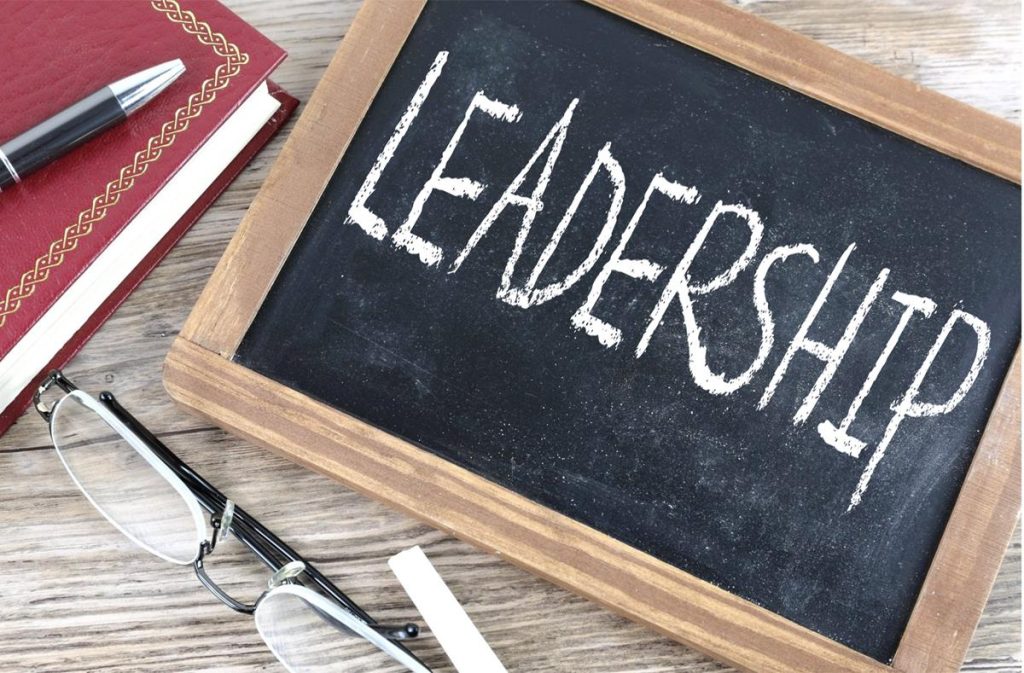
Mark Thompson
Co- Founder
Holos Change Ltd

Co- Founder
Holos Change Ltd

We know it when we see it. We complain when it isn’t there. We look for someone else to do it. We vilify those who stand out by demonstrating it. We critique those who oversimplify it. We ignore those who nuance it. Yet, we yearn in our deepest hearts for someone else to do it brilliantly, and cannot live without it.
Before coronavirus, the world was already in trouble. It was struggling with a deep problem: society had become too used to the managers. Managers were safe, predictable, and reassuring. Managers made sure things went well, that supply matched demand, and that things became gradually more and more efficient and more and more comfortable. Management could achieve this because management knows.
Stockmarkets, manufacturers, farmers, shopkeepers, banks and governments all love management. Management controls the uncontrollable, creating the beautiful illusion of ongoing and perpetual security. If management were music, it would be a symphony.
During this time it was not an especially welcome thing to be a leader. Leadership exists to make change: that is its only function. In an efficient, safe world leadership is annoying and troublesome. Leadership disrupts the status quo and creates unpredictable outcomes, using as its medium experimentation and iteration. Leadership interrupts process, throws out rules, and, crucially, does not know. If leadership were music, it would be jazz.
There is another requisite for [true] leadership: this we will come to later on.
Those with some kind of bent for leadership were stifled in the management world. Traditional routes for progression did not exist: leaders had no tribe, unless they were of the ruling class and could arrive in the world fully formed. Authentic nascent leaders felt they had to work outside the system in order to find ‘the new’ and become fulfilled. Egged on by the likes of Tony Robbins and spiritual teachings, they sought other options. This took many forms; entrepreneurialism, technology, innovation, art, literature, entertainment – but crucially not government. It would be technology and the desire to “be all we can be” that would break the management hold. Once the tech giants became world-beating, the managers, still clinging to their processes and surety, realised they had to change. DISRUPTION became the buzzword, with business now all about responding to being disrupted, and creating your own disruption just to stay alive. Corporate change outstripped the ability of government to legislate. The leaders were now ostensibly not in government.
This created a world of constant change and perpetual chaos. One consequence was that power shifted. Another was that those talented folk who needed to be running countries; those with public good and collaboration in their hearts; were mostly doing other things. Cleaning up oceans. Starting climate movements. Whistleblowing. Creating Foundations – and so on.
So what is happening now? Why did we get strong-man heads of state and an apparent reaction against too much freedom, too much chaos? And why are these people not leaders? Were they not voted in, do they not occupy leadership positions?
Part of the answer to this is self-evident – the pace got too fast. Many people did not understand this new world of constant change and zero-hours, erosion of pensions and reward for corporate failure, unlimited immigration and super-states. They wanted a return to what was predictable, relative, safe – smaller. Strong-men promise that, even though they cannot deliver it, because strong-men only understand leadership in its most pyramidal, antagonistic state. Leaders are those at the top. What they say goes. Everyone who disagrees is an enemy. Simples. (Notice – we never say strong-women. Interesting.)
In fact, these people are not leaders. They are rulers. They do not lead, because the world-view is one that is imposed. Even if you voted for Orban, Trump or Bolsonaro, and believe wholeheartedly in them, you are still not being led. You are being herded, manipulated, or scapegoated. The interest is not in you or society at large: the interest is in themselves. Mercurial power, status, and corruption are their drivers. Change may be their goal but it is change with self-service at its heart, and therefore not leadership but something else.
The pandemic has laid bare any ability to deny the fact that leadership is in crisis. America is fracturing at its heart. Europe is a simmering mess of disunity. NATO seems powerless, too little, too late. Individual countries are treating the pandemic individually. It is hard to tell from the media, but it does not seem as if there is even much medical cooperation, with different nations racing to be the one to create a vaccine.
So what is leadership? It follows a continuum of maturity and perspective, from Self, to Dependent, to Independent, to Interdependent, to Integral. Self, Dependent, and Independent are all versions of control that lead to silos, status, political machinations, and competition. Thereafter both emotional maturity and personal drivers shift, giving us authentic, collaborative motivations – Interdependent and Integral viewpoints do not see winners and losers but strive to create unity and purpose from any given cause. They are inclusive perspectives. This works just as well in ‘peacetime’ as it does during a pandemic. But without those already in positions of power at the helm of the governments and institutions that are actually in a position to help, the driving motivation is self-preservation. Marketing. Winning.
A simple example: in a Dependent/Independent system, the NHS is dependent on, and waits for, government to deliver its PPE, and is run by managers. In an Interdependent/Integral system, decision making is set up to distribute leadership so that NHS Trusts can make their own decisions to procure or manufacture equipment according to the need of their context. Infantilising deeply professional people in a Dependent system is a management act, not a leadership one. Waiting for the Health Secretary to supply us with PPE is also Dependency, and evidence of the management mindset.
In some ways, we have the rulers we deserve: we voted them in, after all. But no system can deliver above the level of its own consciousness. Globally, that consciousness struggles to understand that leadership is all about people and humanity. My military experience taught me that the more adverse the conditions, the more we need to step back, contingency plan, reassure, collaborate and take care of one another. We are seeing those behaviours in communities and online: person to person, it seems obvious, and we provide the support we all need in an interdependent way.
It will take this crisis and its ensuing depression for interdependent leaders to once again assume that mantle at national and international levels. And it is up to us to vote them in.